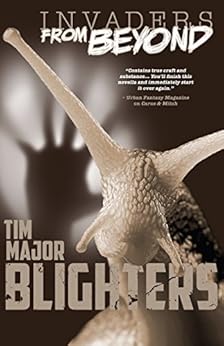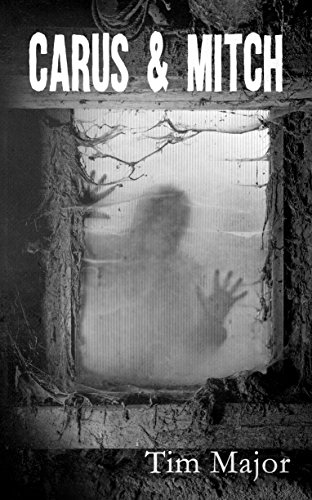Never discard anything. Plenty of readers and writers will recognise this impulse, at least in terms of their book collections. I struggle to cull any book from my shelves, including those I’ve read and those I suspect I never will read. However, I’m thinking more in terms of writing.
Never discard anything. Not only is writing anything a worthwhile exercise, any completed piece of writing is worth keeping.
Here’s a case in point. My first published novella, Carus & Mitch, began life as a YA (Young Adult) novel. It was my second attempt at writing a novel, a more-or-less academic exercise along the lines of NaNoWriMo (in which would-be novelists attempt to write 50,000 words of fiction in a single month, without backtracking or engaging their ‘inner editor’). I didn’t have high hopes of the novel being publishable – and it wasn’t. However, the first three chapters, in which the two young female protagonists lived in isolation within a remote house, were pretty good. The following summer, I ripped out and rewrote the first three chapters and reworked the ending entirely. The novella was published in 2015, reviewed well, and was shortlisted for a This Is Horror Award. (Megan Kerr critiqued part of the original YA novel as part of a Writers’ Greenhouse course in late 2012, and her notes were invaluable, despite the fact that that particular chapter was culled entirely. Thank you, Megan!)
 While I enjoy writing short stories for their own sake, with hindsight I’ll often find that they’ve acted more as testing grounds. Perhaps it’s something subconscious – perhaps it’s just easier to commit to developing an idea into a short story, rather than diving into writing a novel. Before submitting to magazines, I’ll sometimes reread a story and then realise that the aspects that now seem most interesting are those that have been left out. My second novella, Blighters, began as a 16,500-word story and became 30,000 words in its final form when it was published in July 2016.
While I enjoy writing short stories for their own sake, with hindsight I’ll often find that they’ve acted more as testing grounds. Perhaps it’s something subconscious – perhaps it’s just easier to commit to developing an idea into a short story, rather than diving into writing a novel. Before submitting to magazines, I’ll sometimes reread a story and then realise that the aspects that now seem most interesting are those that have been left out. My second novella, Blighters, began as a 16,500-word story and became 30,000 words in its final form when it was published in July 2016. My first published novel, You Don't Belong Here, was originally a 7500-word story about a man who steals a time machine and then hides in a rural manor house in order to conduct tests with it. I wrote it when my wife was pregnant with our first son. Then, three months after Joe was born, I looked again at the story and found that the subject matter seemed oddly suited to my current state of mind. Daniel Faint’s disorientation at his continual leaps forwards in time, his uncertainty about the time and date, his panic about what might have happened in the interim period, felt like an analogy for my child-induced sleeplessness and drowsiness. I reworked the story to take into account these new personal hooks – that is, my own permanent state of disorientation, plus a preoccupation with family and fatherhood. The story grew and grew to become a novel. All of the elements of the short story remain, but now the short story feels like little more than a synopsis of the plot elements. The psychological element was all new.
So, there’s my advice. Never discard anything. Rework failures and mine your shelved stories for anything salvageable. Sometimes the story will only become apparent the second or third time you have a crack at it.
Tim Major's time-travel thriller novel, You Don't Belong Here, (Snowbooks) is available now. He has also released two novellas, Blighters (Abaddon) and Carus & Mitch (Omnium Gatherum) – the latter was shortlisted for a This Is Horror Award. His short stories have featured in Interzone, BFS Horizons and numerous anthologies. He is the Editor of the SF magazine, The Singularity, and blogs at www.cosycatastrophes.wordpress.com.






